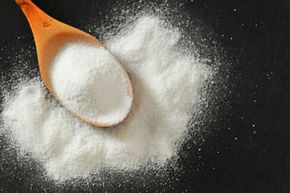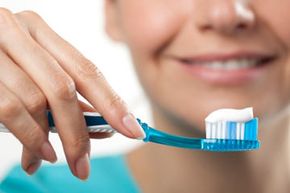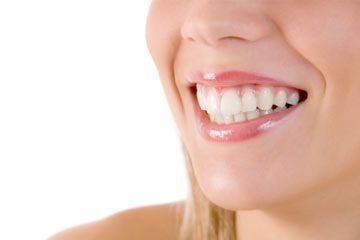If you're a low-maintenance type of person, getting white teeth may seem like a bit of a chore. Professional bleaching and whitening kits can be expensive, messy and time-consuming to use. In comparison, baking soda -- something most people already have in their kitchens -- seems like an attractive whitening alternative. But how much difference can this common household product actually make?
To get at that answer, let's first take a closer look at the makeup of baking soda, which is really just the common name for sodium bicarbonate. It's produced by bubbling carbon dioxide through a solution of sodium carbonate. This forms crystalline mineral salts -- basically, baking soda crystals -- that are then filtered out of the solution, dried and milled to various particle sizes, depending on how it will be used.
Advertisement
Chemically speaking, baking soda is a weak base that is amphoteric, which essentially means it can react with both acids and bases [source: American Chemical Society]. This quality makes it perfect for neutralizing acids produced by bacteria in plaque, which could potentially destroy tooth enamel if left unchecked.
The chemical structure of baking soda also makes it a mild abrasive, and that's why it's so effective for removing surface stains from your teeth. Of course, other polishing agents that are sometimes used in oral care products, such as hydrated silica or dicalcium phosphate, can also help scrub away teeth stains. But baking soda crystals are unique in that they dissolve easily in water, which allows the baking soda to penetrate more deeply into the grooves of your teeth and hard-to-reach places in your mouth than some other abrasives can.
Additionally, baking soda crystals are softer than enamel and dentine (a tooth's outer layers) and therefore can mechanically scrub off stains without scratching those parts of your smile. This has the effect of making your teeth look brighter [source: Domke]. But does it actually make them whiter? Read on to the next page to find out.
Advertisement


